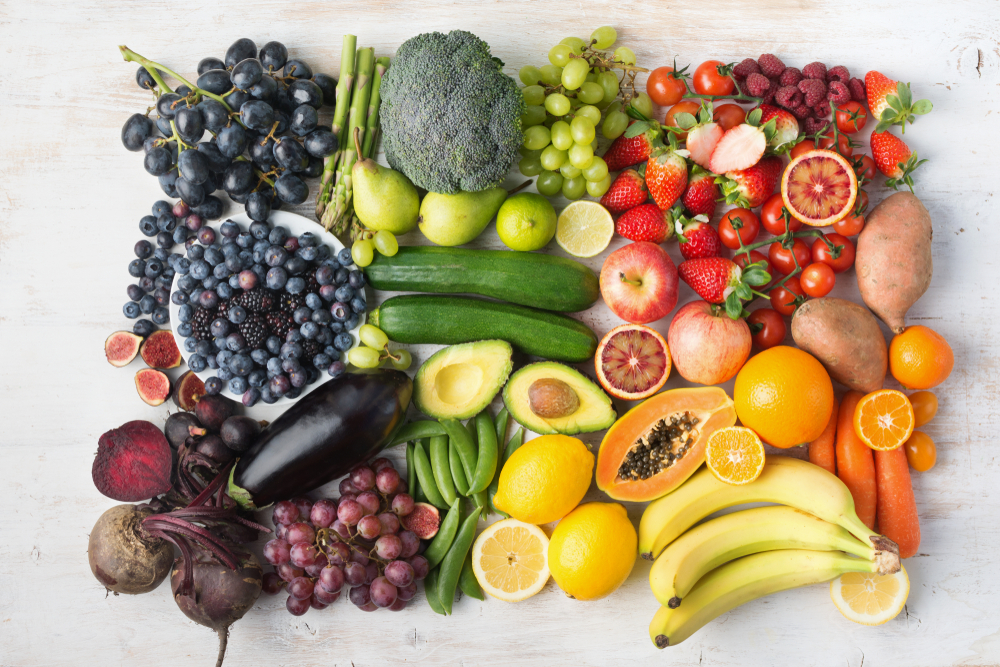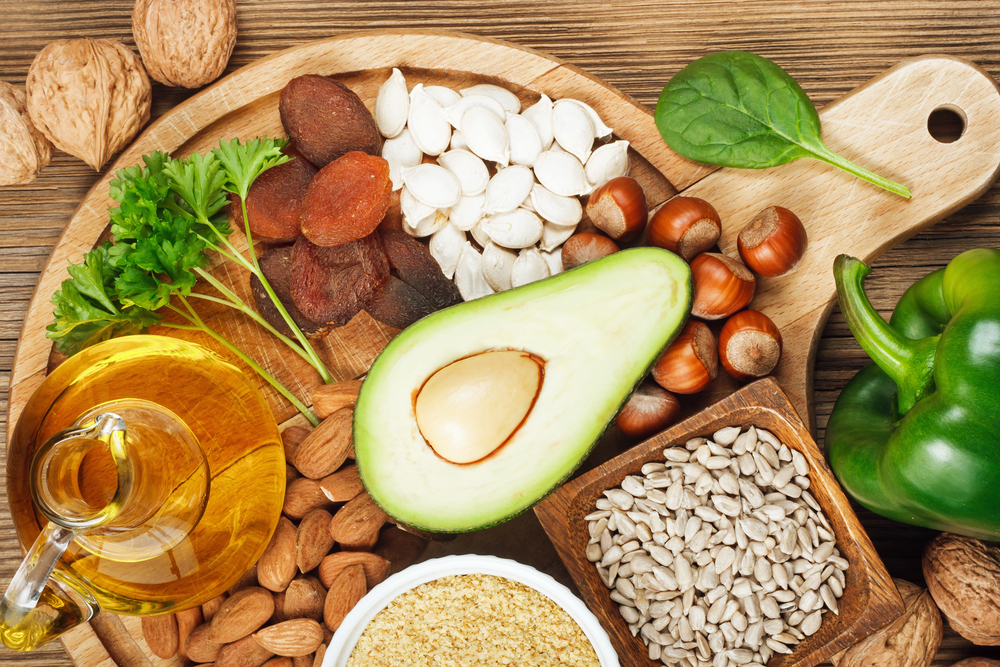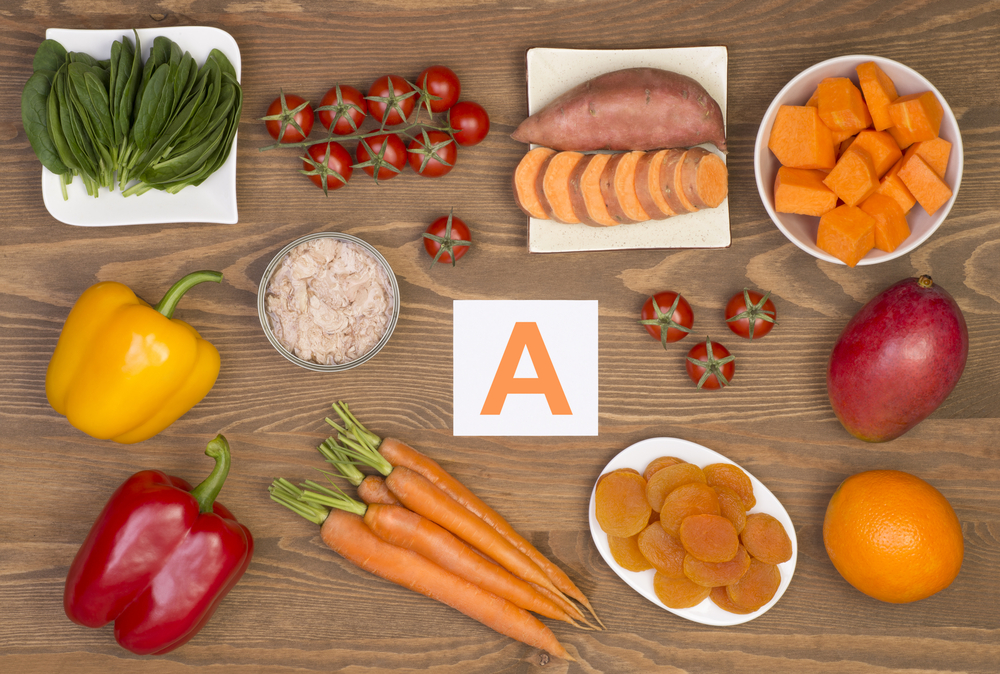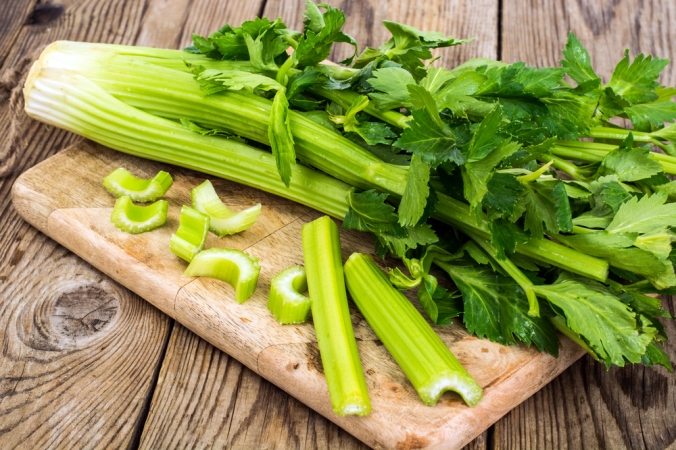
It’s no coincidence that as the temperatures drop outside, nature provides foods that help to keep us warm and energised. Step forward the root vegetables which are rich in energising carbs and immune-boosting nutrients, as well as spices such as turmeric and ginger.
Clinical Nutritionist Suzie Sawyer shares her three favourite soups to warm and nourish your body this winter.

The immune system takes a pounding at this time of year, therefore it’s important to support the body with warming foods, so it’s not under duress. Eating warming soups is also a great way of getting more immune boosting nutrients into the body too.
Sweet potato soup
I’m such a big fan of sweet potatoes! Although they taste sweet, they’re surprisingly good at balancing blood sugar levels, which helps to keep weight under control. Sweet potatoes are rich in beta carotene, which is a powerful antioxidant, but is also turned into vitamin A in the body as needed and is essential for the immune system.
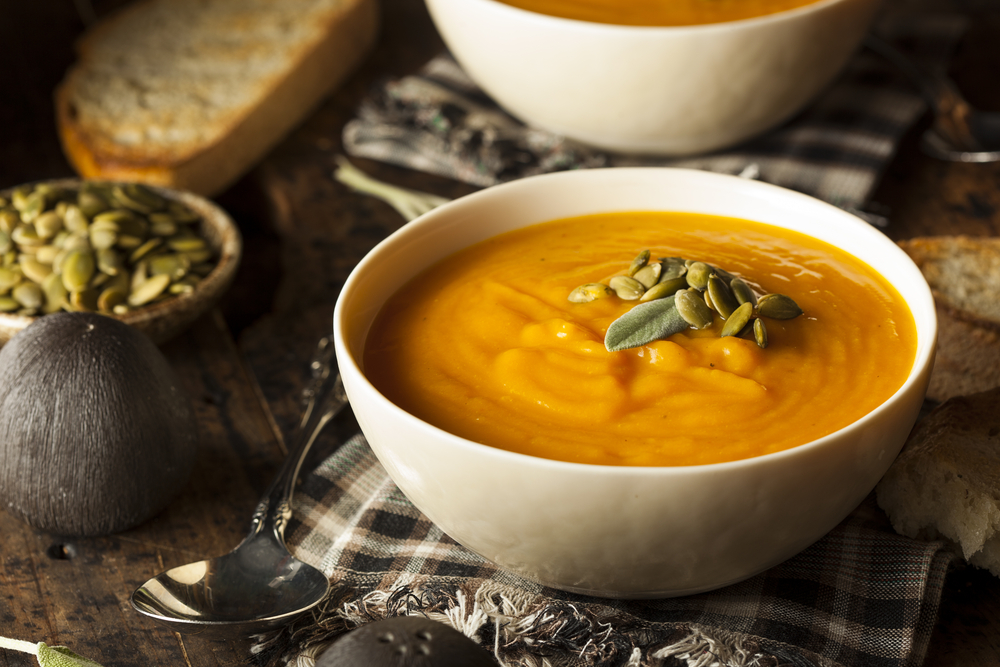
This recipe includes carrots, also rich in beta carotene, and warming root ginger too, plus it’s so simple to make. Simply fry off some onions, garlic, carrots, ginger, and chilli flakes (also warming). Then add the chopped sweet potatoes and some vegetable stock, cook until everything is tender and blend until smooth. Your soul (and taste buds) will certainly enjoy this one!
Chicken soup
From a nutritional perspective, chicken soup is great for beating away any viruses, especially if you boil up the carcass from a roasted chicken for stock and use the leftover chicken. It’s also super economical. Furthermore, using stock in this way provides plenty of collagen, which is not only great for the skin, but for gut health too. Chicken is rich in the amino acid cysteine, which helps break down mucous if you’ve been unfortunate enough to already succumb to a cold.

The recipe also needs some onions, celery and carrots, all rich in immune-boosting vitamin C, together with chopped fresh parsley. This amazing herb is renowned for its disease-fighting properties. Importantly, be sure to add a little turmeric, which is super warming but great for the digestion, liver, brain and joints too.
Not only will chicken soup warm the body, but it will also help protect it from any nasty bugs flying around at this time of year.
Beetroot soup
Beetroots are another one of my all-time favourite vegetables! Maybe their taste is acquired, but if you can find favour with them, beetroots will certainly deliver nutritionally.
Beetroots are great for liver detoxification and provide loads of energy from the B-vitamin folate. Interestingly, there’s also plenty of research on their ability to improve exercise performance, particularly endurance sports such as cycling. Whilst you might not be a great fan of endurance exercise, eating beetroots is certainly going to benefit your heart and lungs in any case.

This recipe uses all the juices from roasted tomatoes, which are rich in lycopene and are also great for the heart, plus onions, garlic, and beef stock. If you sprinkle some feta cheese to serve, together with crusty bread, the strong flavours really complement each other very well. Beetroot soup is also a great warming dish, is supportive of the immune system and will help keep the liver in good working order too which might be even more beneficial during the festive season!
Enjoy creating some warming soups this season!
FOR MORE GREAT NUTRITION AND LIFESTYLE ADVICE:
Sign up to receive our blog and get a weekly dose of the latest nutrition, health and wellness advice direct to your inbox.
For everything you need to know about vitamins, minerals and herbs visit our sister site Vitamin Expert – your essential guide to nutrition and natural health.
Follow us on Instagram @feelaliveuk for nutrition, lifestyle and well-being tips.
Visit us at www.feelaliveuk.com for the latest offers and exclusive Alive! content.
Follow and Chat with Suzie on Twitter @nutritionsuzie
All images: Shutterstock
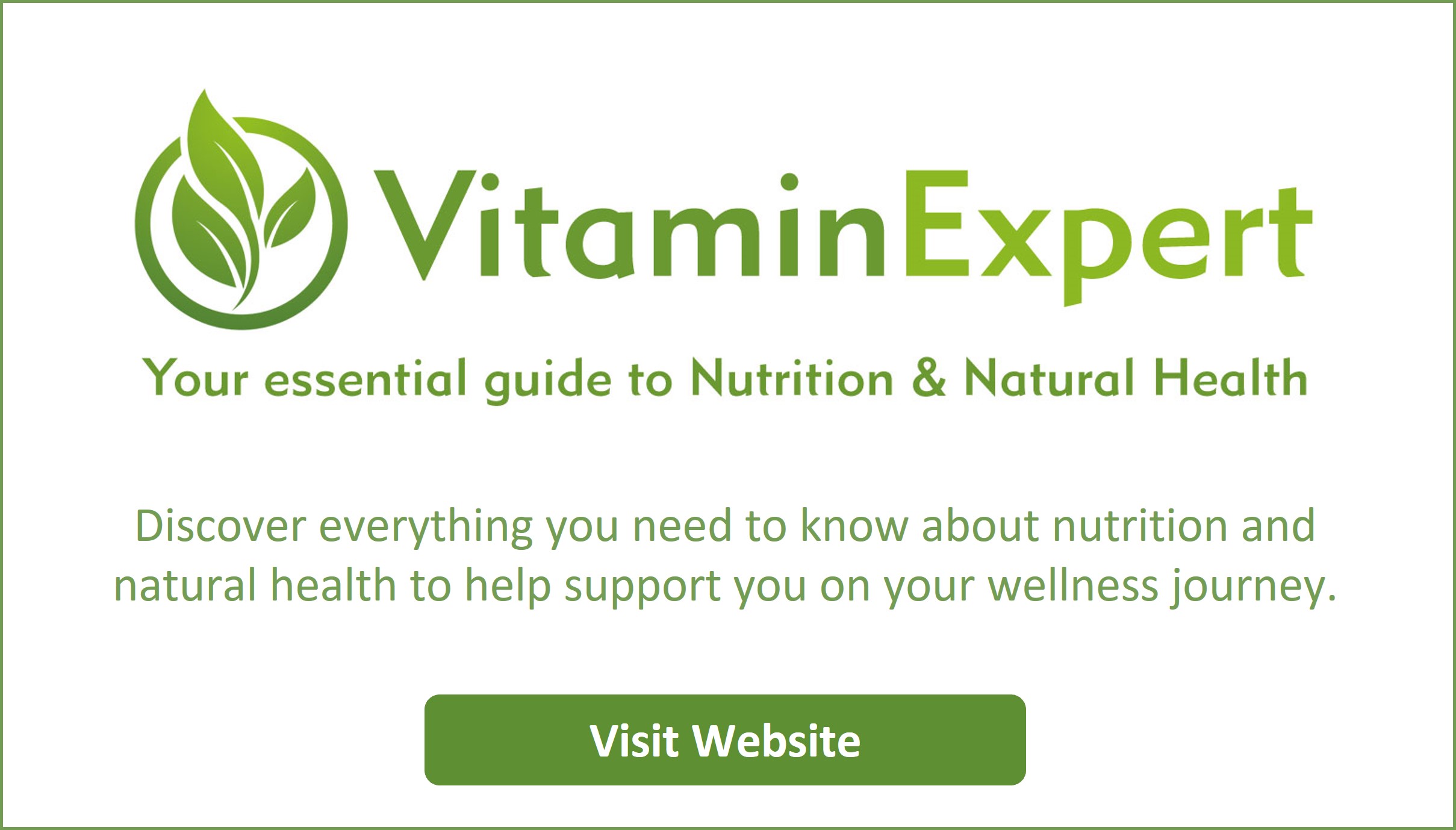


 Not only are Brussels packed full of immune-boosting vitamins and minerals, but they’re also loaded with soluble fibre which is great for gut motility and a healthy gut flora. Take my word for it, Brussels are never going to let your health down!
Not only are Brussels packed full of immune-boosting vitamins and minerals, but they’re also loaded with soluble fibre which is great for gut motility and a healthy gut flora. Take my word for it, Brussels are never going to let your health down! Pomegranates are very high in immune boosting
Pomegranates are very high in immune boosting  Just like onions and garlic, leeks support healthy blood flow and are therefore for the heart. Equally, they are great for efficient liver detoxification, are high in fibre also providing plenty of immune-boosting vitamin C plus
Just like onions and garlic, leeks support healthy blood flow and are therefore for the heart. Equally, they are great for efficient liver detoxification, are high in fibre also providing plenty of immune-boosting vitamin C plus  One of the most exciting health benefits that apples bestow is that they contain a compound called quercetin, which is supportive of the heart. However, research has now found that it’s possibly linked to some of our longevity genes, helping extend lifespan. How exciting!
One of the most exciting health benefits that apples bestow is that they contain a compound called quercetin, which is supportive of the heart. However, research has now found that it’s possibly linked to some of our longevity genes, helping extend lifespan. How exciting! Even better, as part of the same cruciferous vegetable family as Brussels sprouts, kale contains sulphoraphane, which is a powerful antioxidant which helps cancel out free radicals, providing amazing protection for the body. Additionally, sulphoraphane is a powerful anti-inflammatory which will have positive health benefits throughout the body.
Even better, as part of the same cruciferous vegetable family as Brussels sprouts, kale contains sulphoraphane, which is a powerful antioxidant which helps cancel out free radicals, providing amazing protection for the body. Additionally, sulphoraphane is a powerful anti-inflammatory which will have positive health benefits throughout the body.
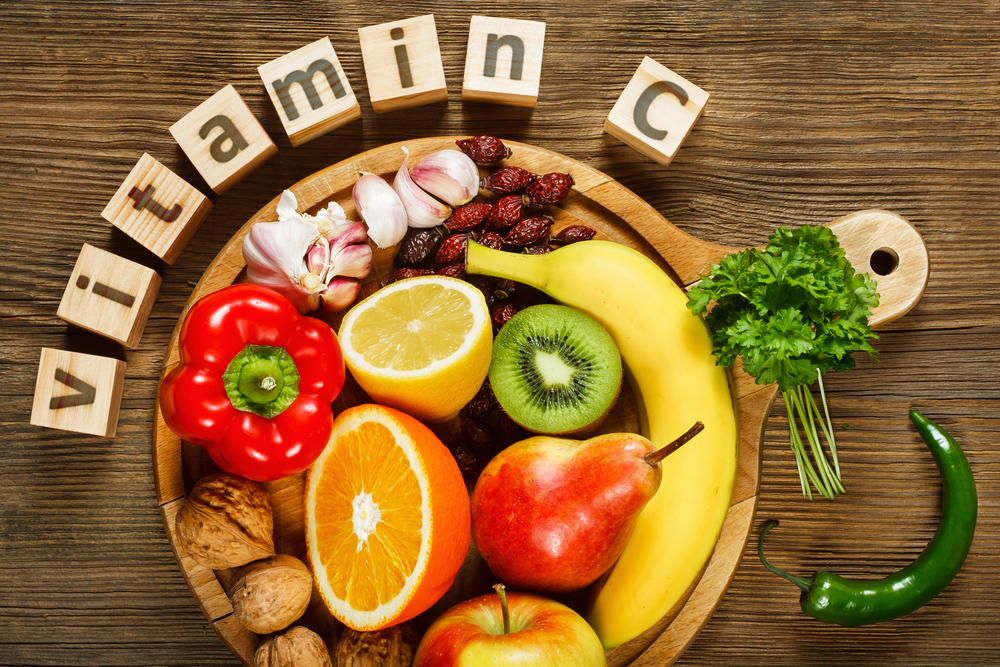
 At this time of year, the richest sources are broccoli, spinach, kale, oranges, tomatoes, peas and kiwi. All root vegetables, which are in season now, are also great sources. Why not prepare some warming soups which include as many veggies as possible; it’s a great and easy way of getting more vitamin C into the body.
At this time of year, the richest sources are broccoli, spinach, kale, oranges, tomatoes, peas and kiwi. All root vegetables, which are in season now, are also great sources. Why not prepare some warming soups which include as many veggies as possible; it’s a great and easy way of getting more vitamin C into the body.
 The best source is from the sunlight, and whilst it still needs to be converted into the active form, more can be stored in the body: which leaves a massive problem during the darker winter months. Supplementation is key (Government guidelines are to take a supplement of at least 10 micrograms daily) but many people need much more than this. Supplements of vitamin D3 are readily available in all health food shops.
The best source is from the sunlight, and whilst it still needs to be converted into the active form, more can be stored in the body: which leaves a massive problem during the darker winter months. Supplementation is key (Government guidelines are to take a supplement of at least 10 micrograms daily) but many people need much more than this. Supplements of vitamin D3 are readily available in all health food shops.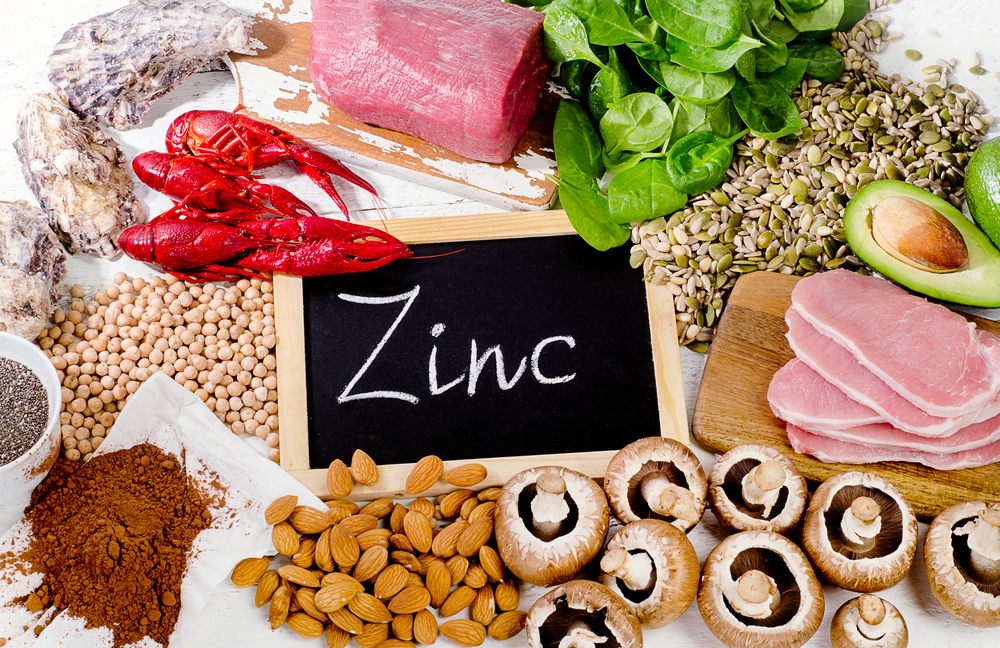




 Acai bowls are still on trend and frozen berries are perfect with toppings of granola, nuts and seeds or desiccated coconut (or anything else you fancy!)
Acai bowls are still on trend and frozen berries are perfect with toppings of granola, nuts and seeds or desiccated coconut (or anything else you fancy!) Its high protein content includes the amino acid tryptophan, which is needed to produce the happy hormone serotonin. If you’re wanting your partner in a good mood for Valentine’s Day, then buckwheat could be a great choice!
Its high protein content includes the amino acid tryptophan, which is needed to produce the happy hormone serotonin. If you’re wanting your partner in a good mood for Valentine’s Day, then buckwheat could be a great choice! Beetroot has a great flavour and makes a lovely accompaniment to goat’s cheese in a salad, in soups, roasted as a vegetable side and even cooked into chocolate brownies. Maybe your Valentine’s Day treat can deliver some great health benefits too!
Beetroot has a great flavour and makes a lovely accompaniment to goat’s cheese in a salad, in soups, roasted as a vegetable side and even cooked into chocolate brownies. Maybe your Valentine’s Day treat can deliver some great health benefits too! Broccoli is also a great source of beta carotene which is turned into immune-boosting
Broccoli is also a great source of beta carotene which is turned into immune-boosting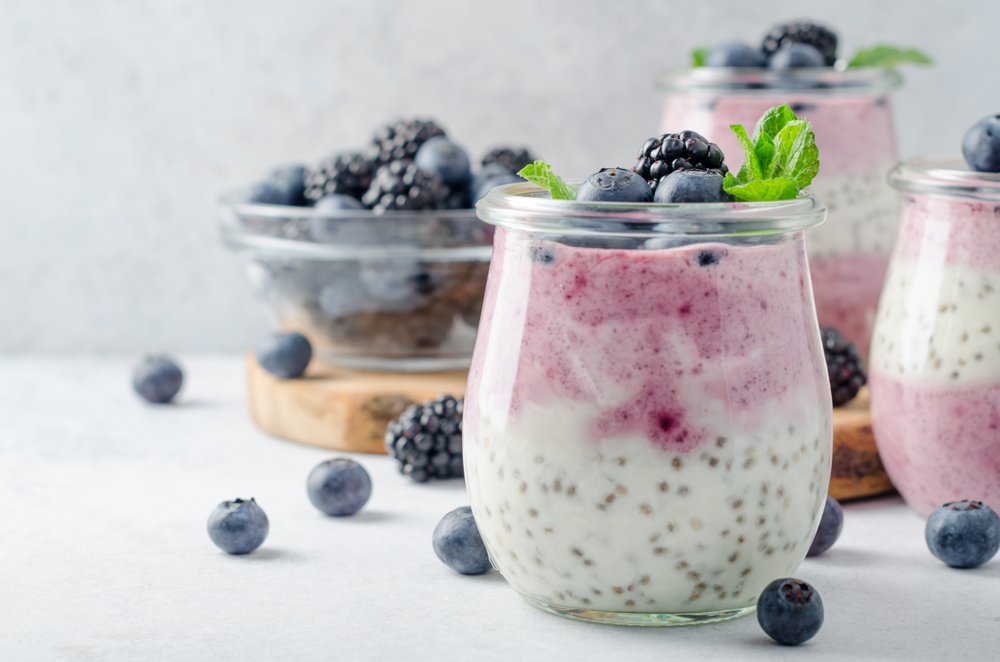 However, they also fare really well on the mineral front with good levels of
However, they also fare really well on the mineral front with good levels of 




